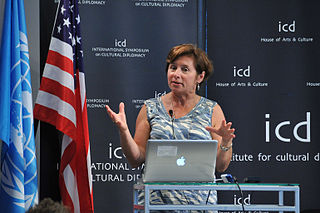A Quote by George W. Bush
Diplomacy can be a frustrating thing. I think the strategy can work, so long as the force is robust and the rules of engagement are clear.
Quote Topics
Related Quotes
Let me be clear: I'm a believer in a robust military, which is essential for backing up diplomacy. But the implication is that we need a balanced tool chest of diplomatic and military tools alike. Instead, we have a billionaire military and a pauper diplomacy. The U.S. military now has more people in its marching bands than the State Department has in its foreign service - and that's preposterous.

































